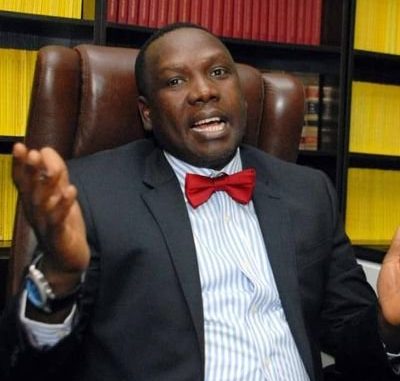
The Special Adviser to President Bola Tinubu on Policy Communication, Daniel Bwala, has backtracked on his controversial description of Lagos as a “no-man’s land,” a comment that triggered widespread outrage after his Wednesday appearance on Arise Television.
Bwala, who addressed the backlash on his official X handle, admitted that Lagos State is historically and constitutionally the land of the Yoruba people.
The legal practitioner also clarified that his words were misinterpreted.
According to him, Lagos’s identity has “never been in contention” and should not be distorted, even though the state remains Nigeria’s foremost commercial hub.
He said, “Don’t misinterpret what I said in my interview this morning. Culturally, historically, and constitutionally, Lagos belongs to the Yoruba people, and that has never been in contention. The unique identity of Lagos as a Yoruba homeland is settled and beyond dispute.”
Explaining his position further, Bwala likened Lagos to global economic powerhouses such as New York, Paris, and London, noting that the city plays a dual role as Nigeria’s commercial heartbeat and a cosmopolitan hub that welcomes citizens from every part of the country.
“What I emphasised was the special place Lagos occupies in Nigeria and indeed West Africa, a city that, much like New York, Paris, or London, serves as the commercial nerve centre of our economy.
“Lagos provides every Nigerian, regardless of origin, a level playing field to thrive, and in this sense, it mirrors the diversity of our nation while remaining firmly rooted in Yoruba heritage.
“My argument was, therefore, and justifiably so, for massive investments in infrastructure to sustain the economic and social responsibilities Lagos has shouldered on behalf of Nigeria,” he stated.
According to him, his central argument on television was that any president who hopes to succeed must deliberately invest in Lagos because of the enormous social and economic responsibilities it shoulders on behalf of Nigeria.
“Such support is not because Lagos is ‘no man’s land,’ but because it is the heartbeat of the nation’s development,” he clarified.
Earlier during the interview, he emphasised that the concentration of federal projects in Lagos should not be viewed as favouritism but as strategic investment in the country’s commercial hub.
“Let me tell you why Lagos State is different. Lagos State is a no-man’s land. In the last election, the President who comes from the South-West did not win Lagos. That tells you the cosmopolitan nature of Lagos State.
“The richest man in Africa is a northerner. His business is not in Kano, it’s in Lagos. Almost every rich man that you know in Nigeria has a business undertaking in Lagos, and the Nigerian people are represented in Lagos.
“If not, because probably the majority of the people are Yoruba speaking, you will wonder whether Lagos indeed is from the South-West.”
Bwala maintained that the N3.9 trillion worth of federal projects reportedly allocated to Lagos in two years was justified, stressing that Lagos remained Nigeria’s hub of commerce and a beacon of economic growth.
“So the idea that you put more in Lagos than in other states or the federation should be put into a proper context. Lagos is a no-man’s land. Lagos is the hub of Nigeria. Lagos is the pride of the country,” Bwala added.
The debate over who truly owns Lagos has been a recurring flashpoint in Nigeria’s politics and ethnic relations. While the Awori are widely regarded as the earliest settlers, others, including the Benin, have also laid historical claims to the city.
The controversy resurfaced in recent years, especially during elections. The issue has often flared up along Yoruba-Igbo lines.
Campaigns such as the #IgbomustGo trend, which urged Igbo residents to leave Lagos, drew widespread condemnation from the state government, pan-Yoruba group Afenifere, and Ohanaeze Ndigbo Worldwide, who warned that such rhetoric was divisive and dangerous.






Be the first to comment